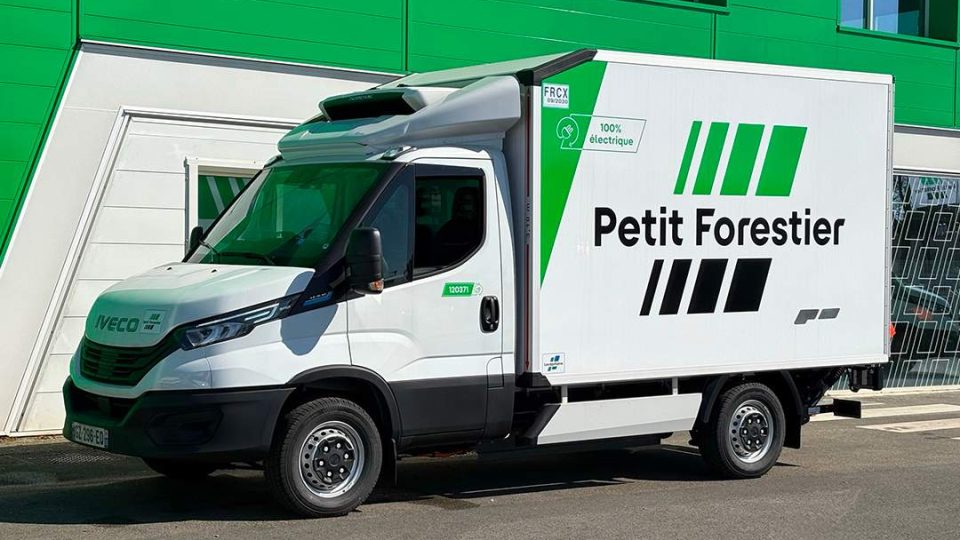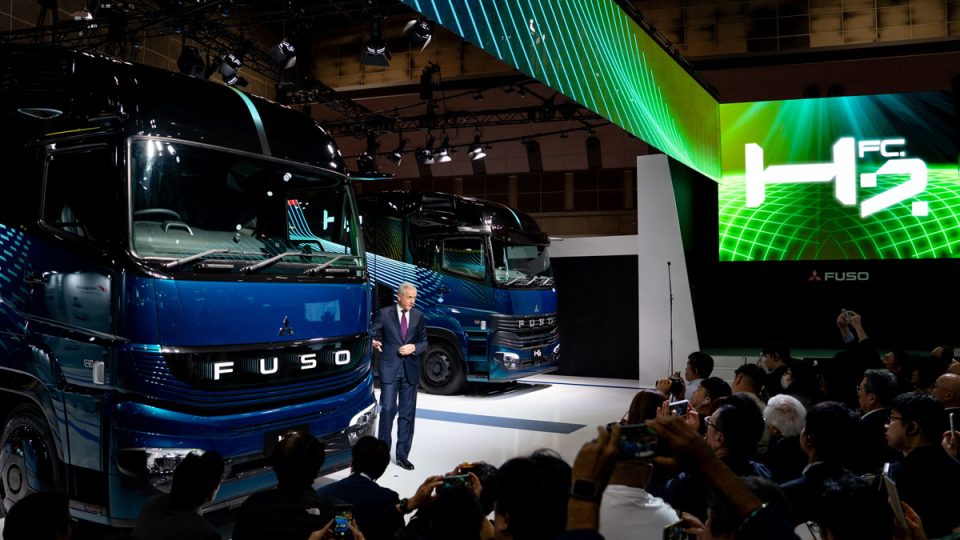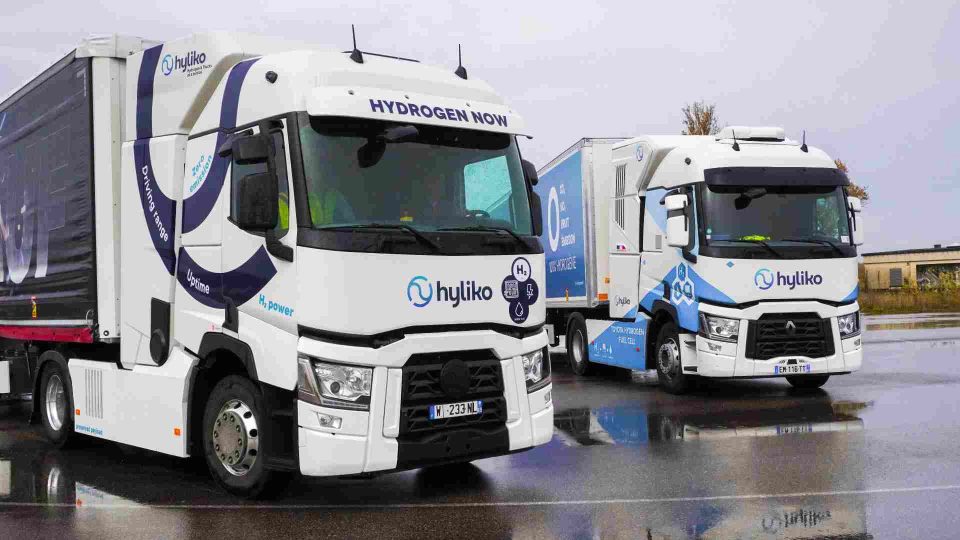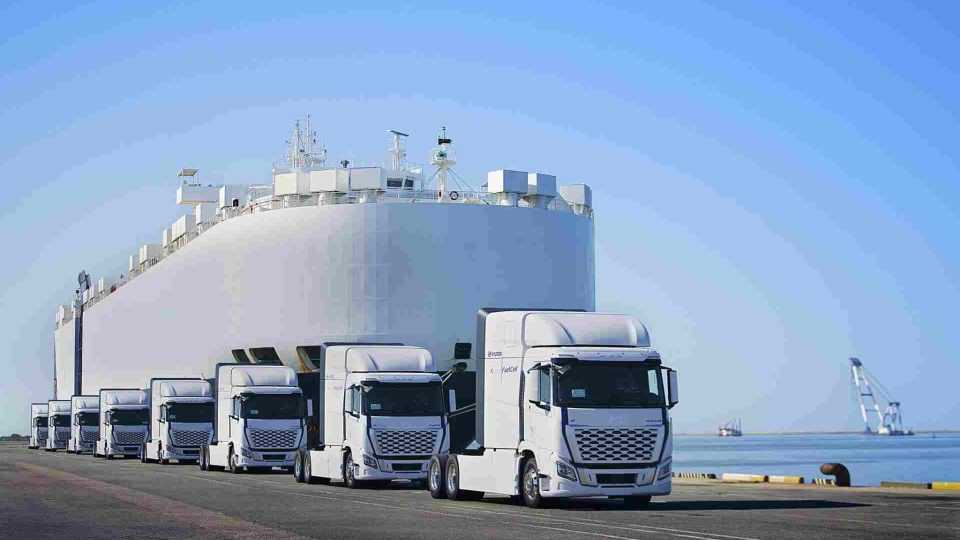«Hydrogen is the fuel we need to get to». Interview with David Johnson, Westport Fuel Systems CEO
The company’s H2 HPDI fuel system, based on the patented HPDI technology, allows the engine, when fueled with hydrogen, to increase power and torque, as well as minimize emissions. "We took an engine running with natural gas and started to do some tests with hydrogen. Power output increased by almost 20%, torque by about 15%, efficiency by 10% compared to a diesel engine", said CEO Johnson.
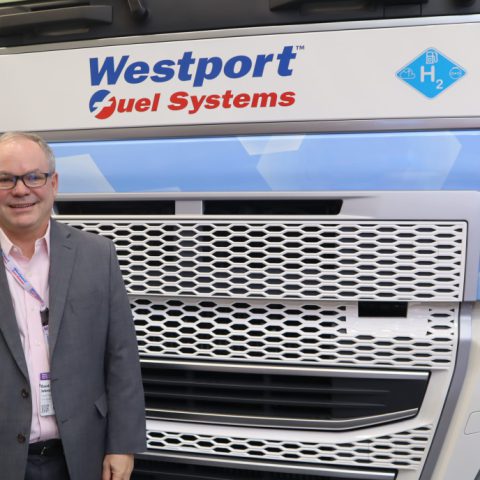
Canadian-based Westport Fuel Systems participated in IAA 2022 bringing a concept truck with a special hydrogen ICE. The company’s H2 HPDI fuel system, based on the patented HPDI technology, allows the engine, when fueled with hydrogen, to increase power and torque, as well as minimize emissions. According to Westport’s view, OEMs will be able to continue using existing internal combustion engines by powering them with hydrogen, thus leveraging their investment in vehicle drivetrain design, supply chain and manufacturing.
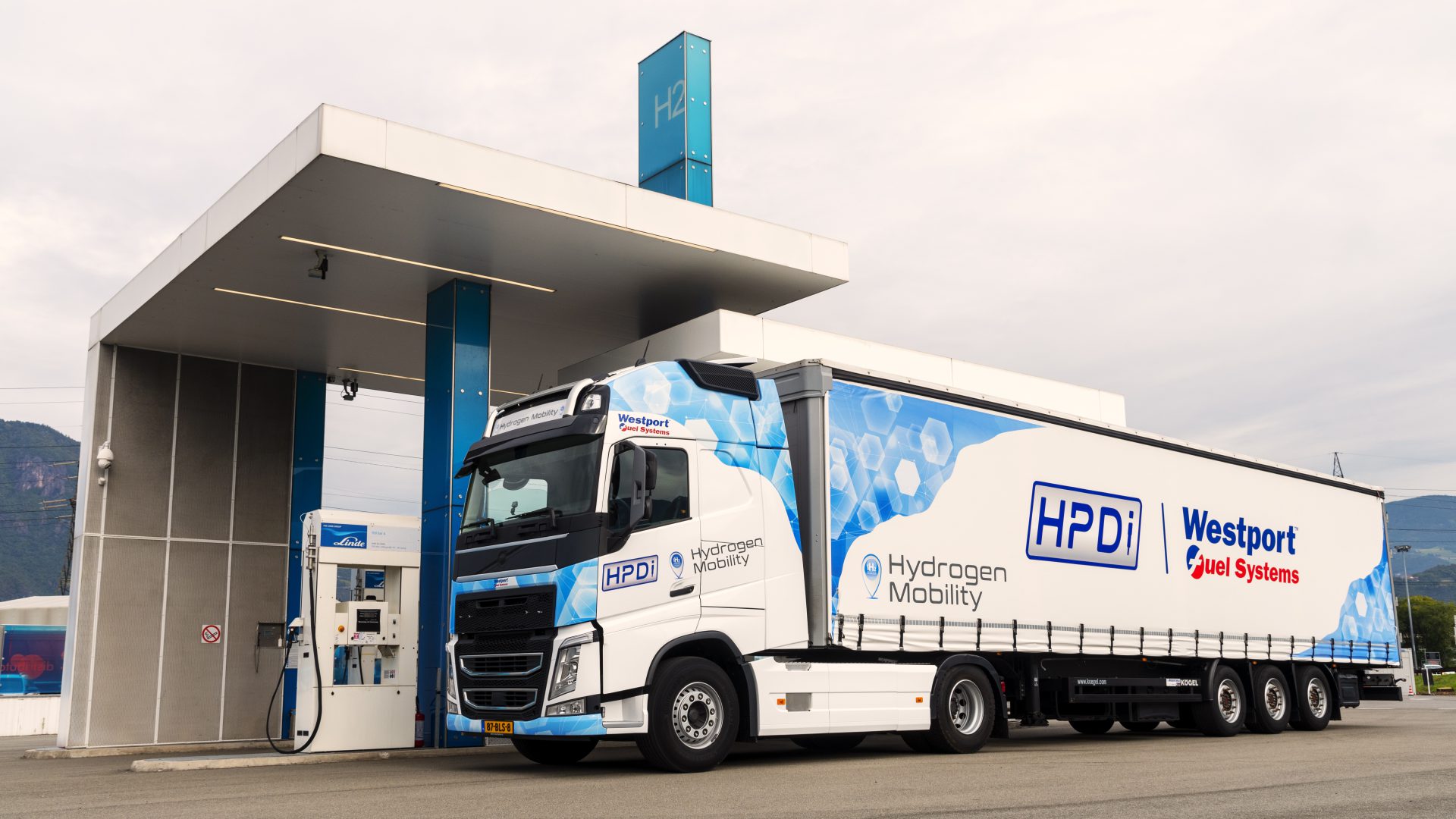
Westport’s patented HPDI system (to be applied to hydrogen)
The HPDI system developed in view of hydrogen is quite similar to the one currently in use with natural gas. The latter consists of a fully integrated on engine and off engine fuel system components and electronic control solution, with a cryogenic tank and integral high pressure LNG pump mounted on the chassis of the truck and plumbed to the engine where fuel pressure is regulated before being supplied to the injectors via high pressure fuel rails. Technically speaking, at the heart of the engine is a patented injector with a dual concentric needle design. It allows for small quantities of diesel fuel and large quantities of natural gas to be delivered at high pressure to the combustion chamber. The natural gas is injected at the end of the compression stroke.
At IAA, we met Westport Fuel Systems CEO, David Johnson. We had a great conversation dealing with the future of hydrogen in the truck sector. His opening words were quite significant. “Hydrogen is the fuel we need to get to, especially for long-haul heavy-duty vehicles. We need to do so in a way that still delivers for the people that move that freight, which means providing all the power and torque and efficiency. Hydrogen fuel is very expensive today, but it’s going to calm down”.
When we talk about running on hydrogen, about 98% of the energy used comes from hydrogen, 2% from our pilot fuel, which can be diesel, HVO – still a carbon fuel, but negative carbon reduction – and so on. In the future, there might be some zero-carbon pilot fuel. We think this 2% is not a roadblock, as the benefits of using hydrogen and HVO are so enormous we shouldn’t get stuck to the fact that it’s not ‘zero’
Westport Fuel Systems CEO, David Johnson
Hydrogen ICEs vs fuel cells
What about fuel cells? Will they be the main viable way to exploit hydrogen?
“In our opinion, the future of hydrogen is not only related to fuel cells. We’ve demonstrated, published data that the vehicle we see here can drive on hydrogen. There’s nothing wrong with fuel cells, they’re great devices and have their place in industry. The fact is that fuel cells are, and will be, rather expensive, and this can be a true barrier in the market. Costs are important in commercial vehicles. When we think of hydrogen for transportation – I don’t know exactly when it’s going to happen – it must be cost-effective”.
Also, there are quite important technological differences…
“Of course. If you think of a hydrogen fuel cell truck or a hydrogen ICE truck, the difference is that with fuel cells you also need batteries, motors, cooling systems. On the other hand, the ICE is the same we have today. In terms of costs, ICE vehicles will be much more affordable. Additionally, with ICEs, we can take the engine and replace it with a new one running on hydrogen. It’s still essentially a diesel engine, running a diesel cycle. It is also reusable, in compliance with the respect for environment.
On the other hand, when making fuel cells, you need a new plant. When making batteries, you need a new plant. The same with motors. This is quite heavy as for the acquisition cost for a truck, as well as for OEMs”.

Westport expertise in view of hydrogen-powered engines
What’s the expertise Westport can rely on when it comes to hydrogen engine development?
“We’ve been in the gas business (LPG, propane, natural gas, biogas) for decades. Basically, the spark-ignited hydrogen engines have some real challenges. We decided we would investigate how our existing HPDI equipment could be adapted to hydrogen. So, we took an engine running with natural gas and started to do some tests with hydrogen. The results were great, and we published them. We’re respecting the limits of the engine we’re working with, so not higher cylinder pressure nor thermal loads. We did calibration, increased the power output by almost 20%, torque by about 15%, efficiency by 10% compared to the diesel engine”.
What about the engine performances?
“Our HPDI natural gas engine has basically the same performance of the diesel engine, in terms of power, torque, efficiency. The combination of HPDI and hydrogen allowed us to further increase the engine performances. We’ve already seen in our labs that we can reach 4-5 percentage points of improvement in thermal efficiency, which turns in about 10% vehicle consumption reduction.
Regardless of fuel, our HPDI technology gives the possibility of running like a diesel engine, however using gaseous fuels. We don’t give up any diesel performances. Hydrogen compression ignition engine, then using our patented technology, will perform better. We believe that hydrogen engine with HPDI technology is the way to go forward”.

Do you think that fuels such as biogas or biomethane may be viable for the future of transport?
“All the different fuels and technologies we’ve mentioned so far, they’re all going to have their place in the market. The question is: how big will it be? I’m quite thrilled by biogas and we know there’s more and more biogas coming. If we let these molecules of methane escape in the atmosphere, it’s bad for the environment. So, we should capture more and more of them from the different sources, process them and put them into trucks. Our HPDI system is totally compatible with biogas”.
Not zero emissions, but nearly-zero emission…
What about the share of emissions generated by hydrogen ICEs?
“When we talk about running on hydrogen, about 98% of the energy used comes from hydrogen, 2% from our pilot fuel, which can be diesel, HVO – still a carbon fuel, but negative carbon reduction – and so on. In the future, there might be some zero-carbon pilot fuel. We think this 2% is not a roadblock, as the benefits of using hydrogen and HVO are so enormous we shouldn’t get stuck to the fact that it’s not ‘zero’. This is the message we want to give. Also, we’re working with leading players that make aftertreatment systems and they share our vision”.
Truck manufacturers don’t talk a lot about their tests with hydrogen ICE vehicles. Also, newcomers in the truck world seem to rely on fuel cells instead. What’s your opinion on this?
“Right now, there seems to be the idea that internal combustion engines are inherently bad, I’d say evil. People who want to get rid of ICEs is like people who want to get rid of energy. It’s nonsense. We cannot let this voice dominate the conversation”.



